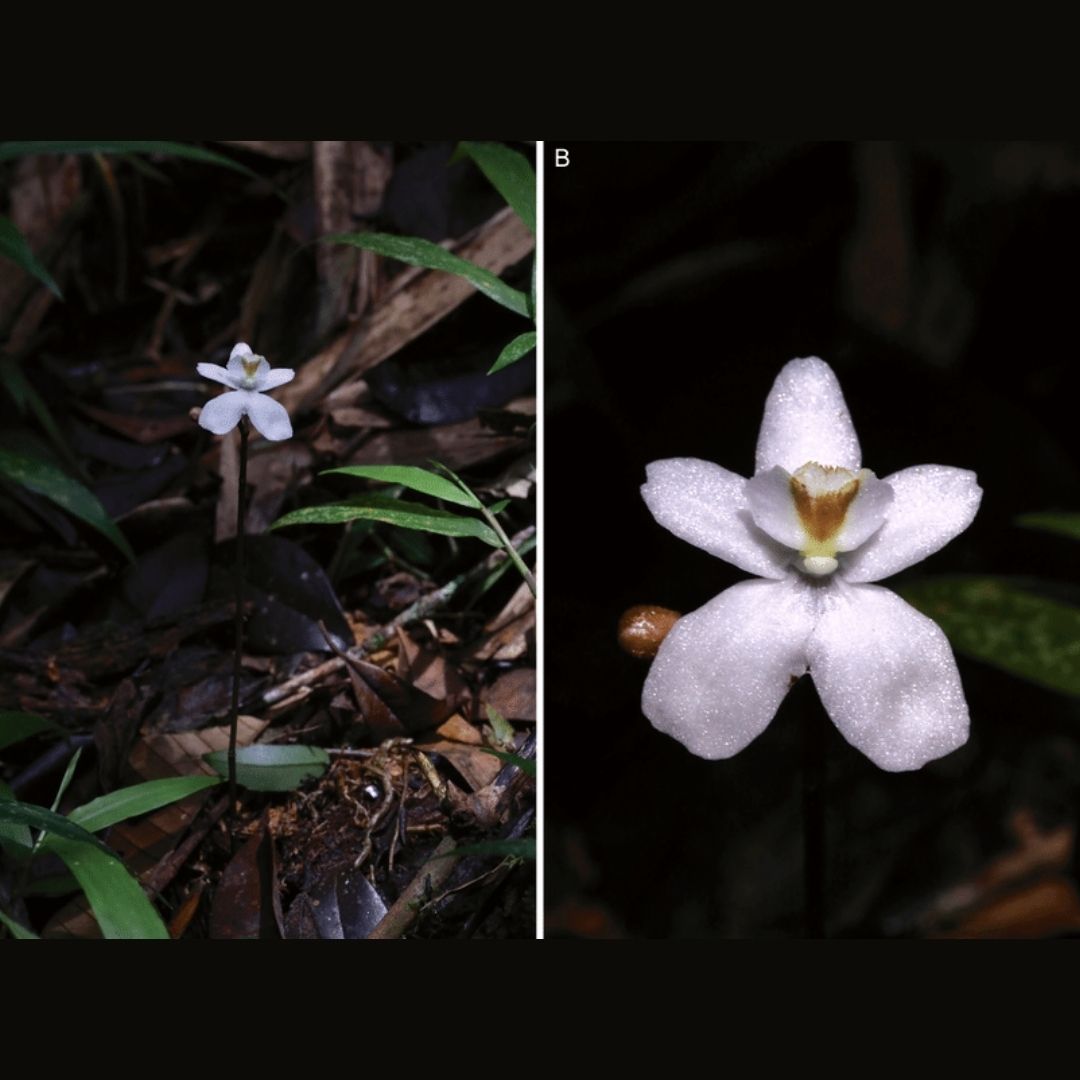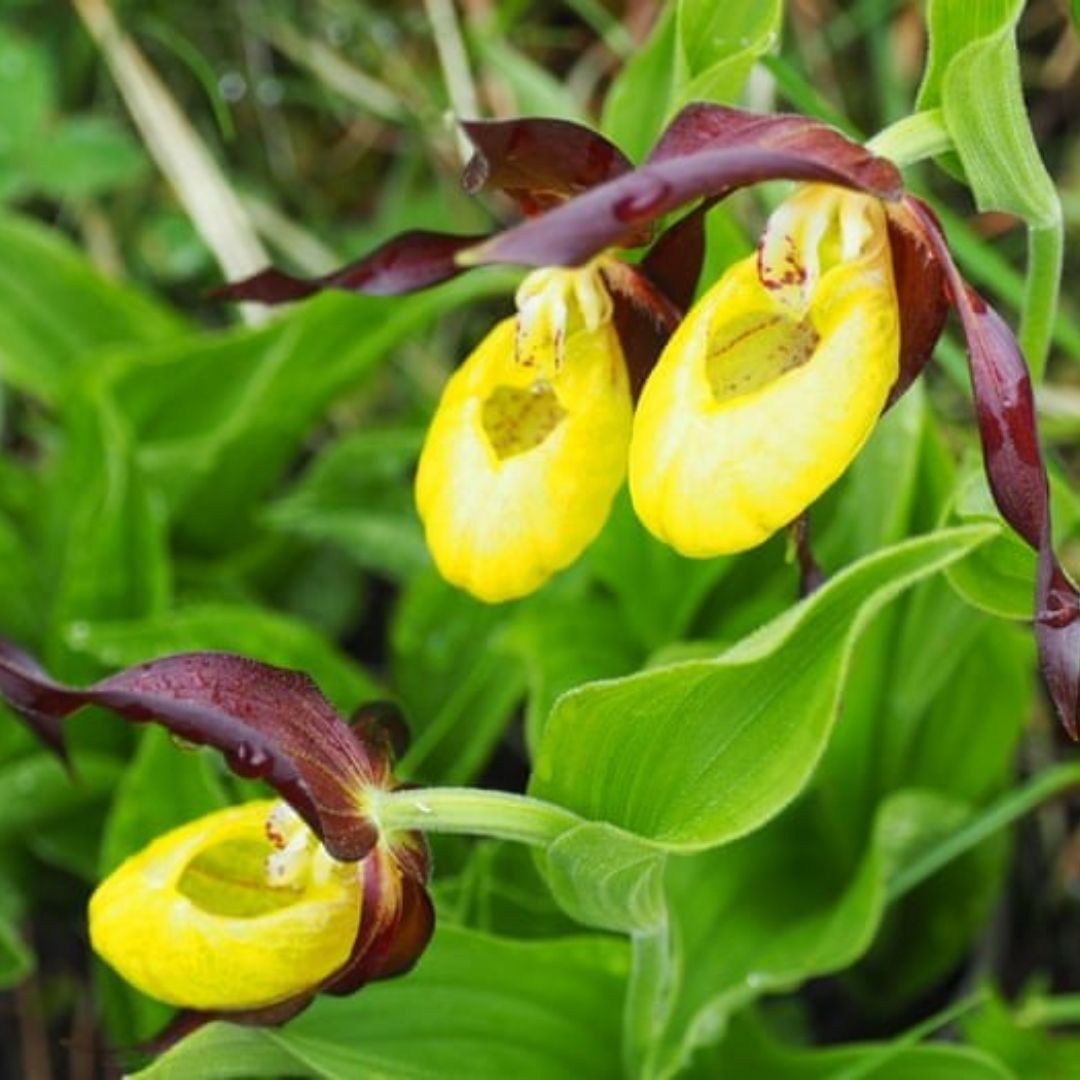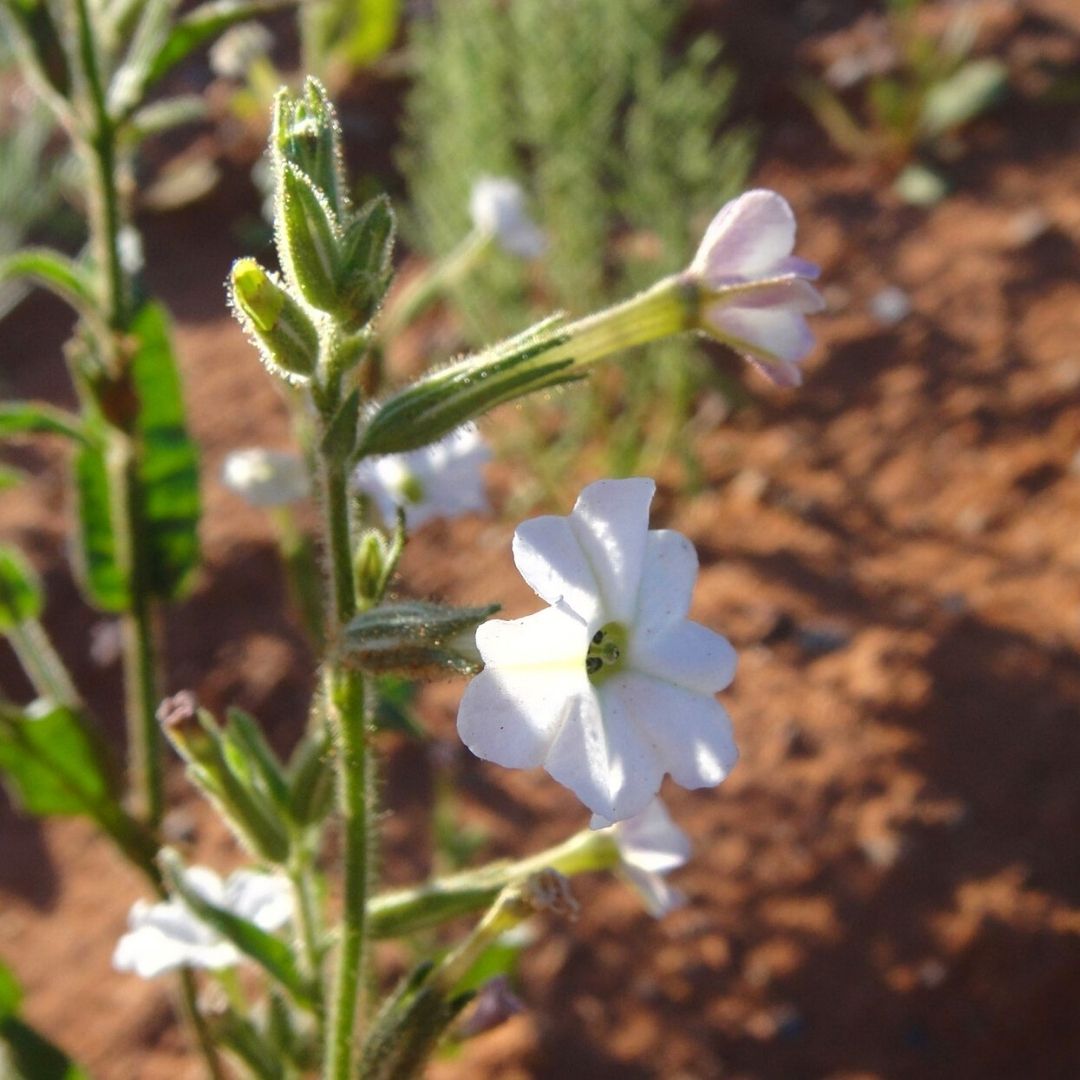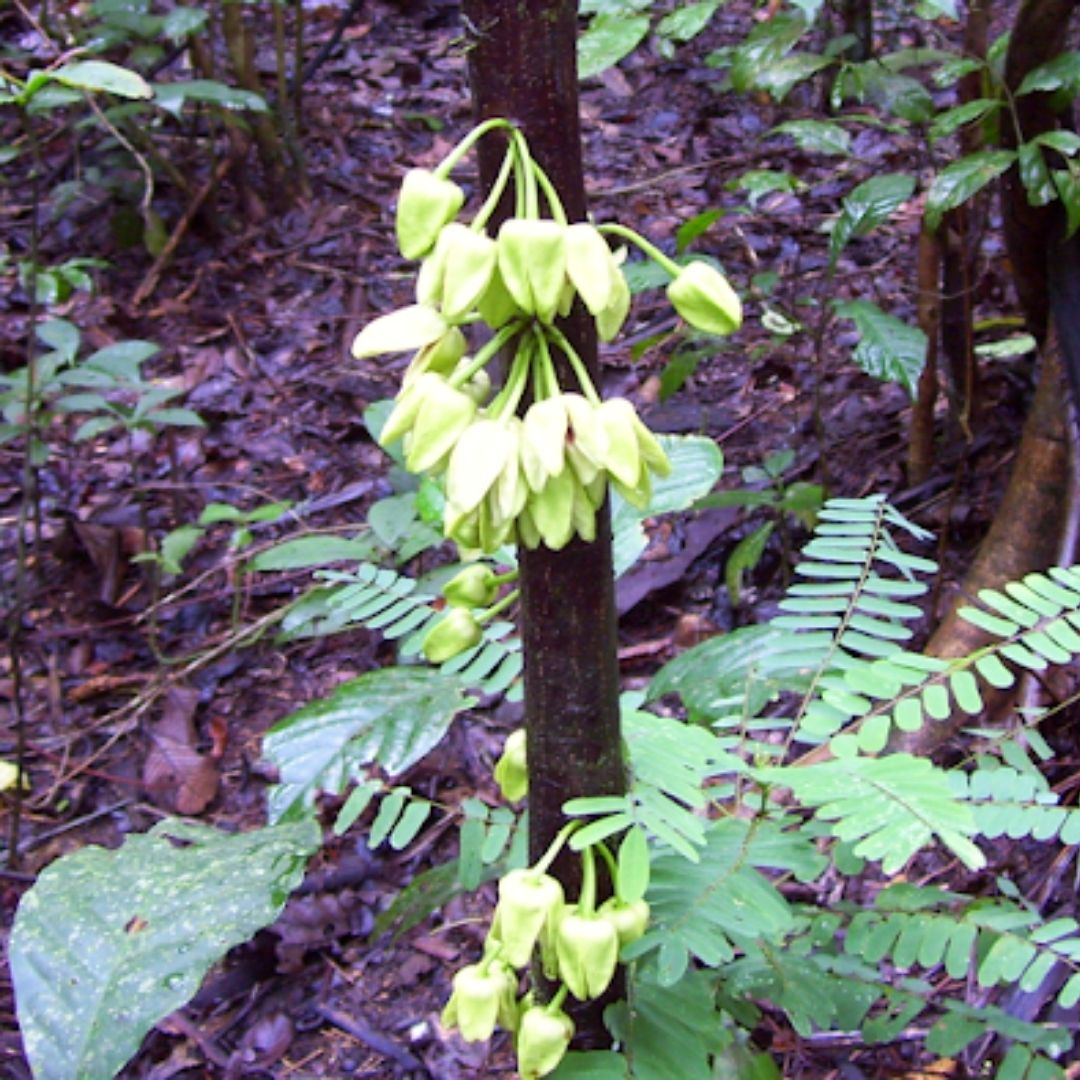A darkness-loving ‘Ghost Orchid’ has been named among hundreds of new plant species by the scientists from the Royal Botanic Gardens, Kew.


Photograph: Johan Hermans / Kew Bulletin
‘Ghost Orchid’ Named Among 205 New Plant Species In 2021!
If you think plants can’t grow in the dark, think again! Deep within Madagascar’s dense forests, scientists have discovered an unusual plant that doesn't use the process of photosynthesis to grow. The unusual orchid was named Didymoplexis stella-silvae by RBG Kew’s Johan Hermans — it means “star of the forest”, as it grows in darkness and has star-shaped flowers.
So, how does it grow? Well, it has no leaves or chlorophyll for photosynthesis, so it gets all of its nutrients from underground fungi. This new species was one of 16 orchid species discovered in the remote forests of Madagascar.
Scientists affiliated with RBG Kew named 205 new plant species in 2021. It’s bewildering they've discovered so many!


Photograph: Carey Davies / The Guardian
2 In 5 Plant Species Are Threatened With Extinction
With around 400,000 plant species all over the world, roughly 2 in 5 are threatened with extinction. This is mainly due to the destruction of forests for agriculture, industry and mining, as well as overexploitation, climate change, biodiversity loss, invasive species, pollution, and palm oil plantations.
Scientists across the world have named roughly 2,000 new plant species every year for at least a decade. But now, some say that time is running out to find them all. “Now is our last chance to find unknown species, name them, and hopefully protect them before they become globally extinct. Who knows how many thousands of plant species it will be revealed in future to have likely become extinct due to palm oil plantations.” said RBG Kew’s Dr Martin Cheek.


Photograph: Maarten Christenhusz / RBG Kew
Insect-Trapping Tobacco Plant Discovered In Western Australia
Closer to home, in Western Australia, an unusual species of wild tobacco was discovered near a remote truck stop! Nicotiana insecticida is bizarre for many reasons, but primarily due to its carnivorous appetite. The plant is covered in sticky glands that trap and kill small, unsuspecting insects.
Dr Mark Chase, from the team at RBG Kew, collected the seeds from the tobacco plant and cultivated them. The plant developed the same sticky glands, indicating that this was, indeed, a brand new species of wild tobacco!
Remote parts of Australia may be hiding many unknown species. “The arid parts of Australia, have been thought of as almost barren, but in recent years these poorly studied areas have yielded many new and unusual species,” said Mark.


Photograph: Lorna MacKinnon / RBG Kew
Ylang-Ylang Tree Named After Leonardo DiCaprio
Among the 205 new plant species discovered by RBG Kew scientists was a tree from the ylang-ylang family in Cameroon. The tree — found deep within Cameroon’s Ebo Forest in early 2022 — was named after actor and environmentalist, Leonardo DiCaprio!
DiCaprio played a major role in protecting the species’ habitat from logging. “We think he [DiCaprio] was crucial in helping to stop the logging of the Ebo Forest,” RBG Kew’s Dr Martin Cheek told BBC News.
The beautiful ylang-ylang tree isn’t out of the woods yet. Despite logging permits being cancelled in August 2020 by the President of Cameroon, Uvariopsis dicaprio is still in danger due to the potential relaxation of these new logging laws, as well as illegal logging.
We love hearing about the discovery of new plant species! Especially ones that have unique abilities — like being able to grow in complete darkness, or trap little insects with its sticky glands. Nature is pretty amazing, right?
For more interesting stories like this, check out our Eco News category and the blogs below.
After A 16-Year Absence, Dwarf Pansies Have Bloomed On The Isles Of Scilly

